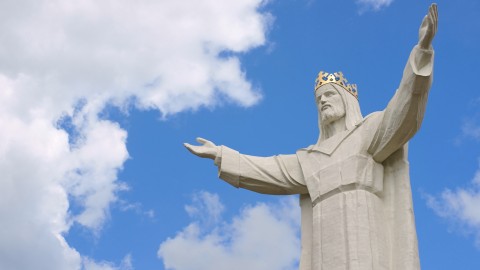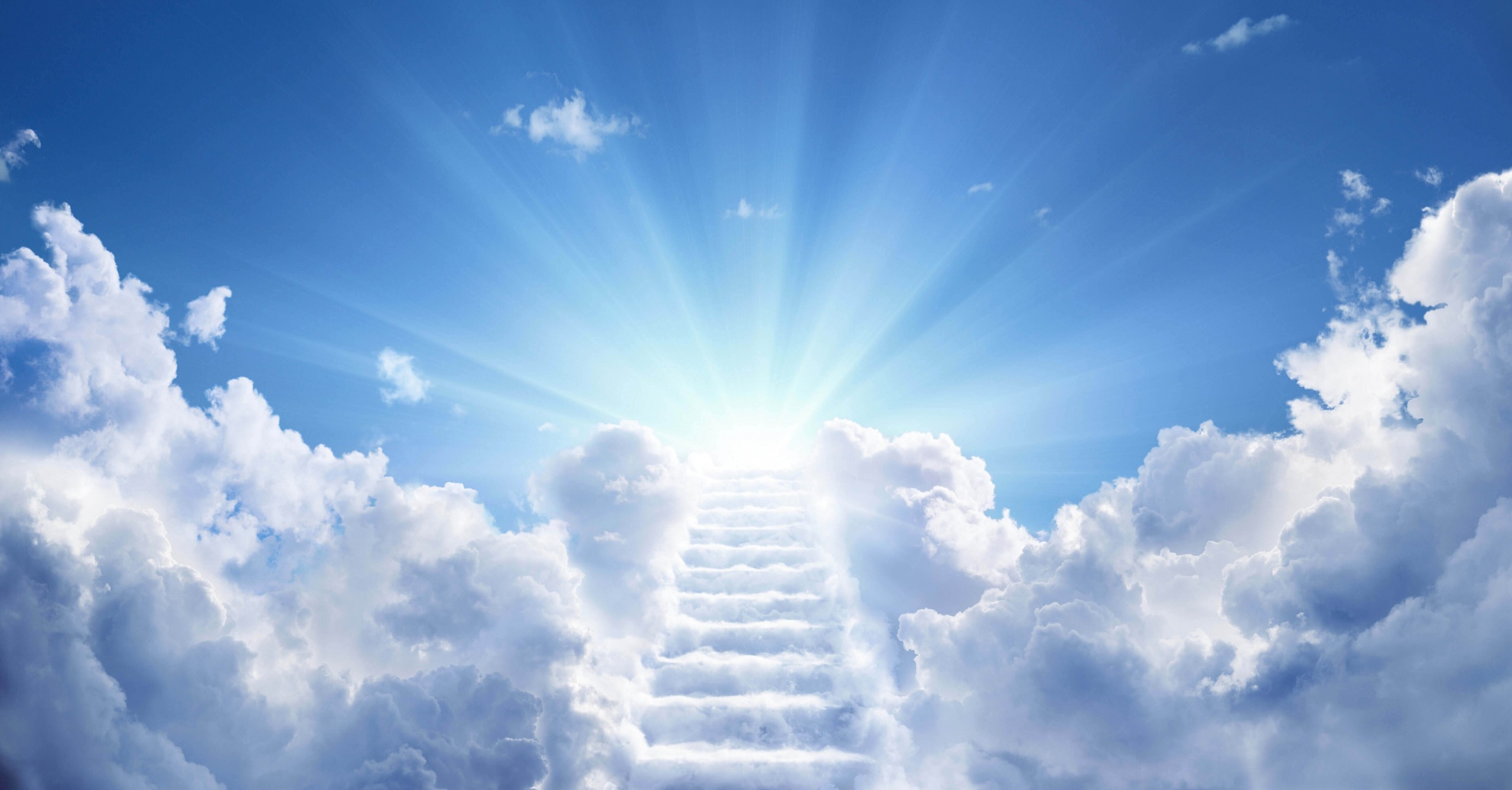The Nativity of our Lord Jesus Christ, 25 December 2021

We gather together today because of something extremely important. Jacob saw angels going up and down, but this time the one who has come down is the Son of God. We celebrate the birth not only of a baby, but this Baby is our King. We join millions of Christian believers around the world, and rejoice together in the birth of our Lord.
You’ve probably celebrated Christmas every year of your life, beginning in your mother’s womb. Many cultures around the world celebrate Christmas, although focusing more on the festivities. Every day children are born, but there’s something very different and unique about this Child: no one like Him was ever born. People and families are particularly drawn together at Christmas. Christians and non-Christians alike look forward to its fun.
One Christmas when I was young, we visited relatives; a day’s journey became three days when we were stranded because of a great typhoon. Each time I celebrate Christmas, I’m reminded of this experience. The other moving experience I had which relates to Christmas was when we visited Bethlehem. Wherever something important happened in the Middle East, a church was built. Christ’s birthplace is in an underground crypt, and a flood of Biblical scenes came to mind: the Magi, shepherds, the song of the angels, and many other things. That day I left Bethlehem, but Bethlehem has never left me.
The beginning of Christian history
Luke provides more details surrounding Christ’s birth than any other Gospel writer. He was a scrupulous historian who paid attention to details and was very particular about time and place. It’s most likely that the Blessed Virgin Mary recounted her experience to him: we’re told of unusual events such as the first noel, the angelic visitation, the journey from Nazareth to the hill country, and the birth in the stable.
Most of us know little about the account of His birth except what we read in the Bible. In the second century, Saint Justin Martyr wrote of a certain cave in Bethlehem which locals venerated as Jesus’ birthplace, and thus preserved the historical memory of the Nativity; every year they visited this place, and celebrated. You and I may not have that opportunity, but today we celebrate. A century later, an Egyptian scholar named Origen made a pilgrimage to Bethlehem and wrote his own account.
Scott Hahn said the history of Christianity starts with Christmas:[1] in this season we celebrate the history of Christianity, which is beyond human history.
Pope Benedict XVI said we need to ask ourselves whether this story is historical – something that really happened – or “merely a story for followers of Christ to ponder” (to think about and believe).[2] Either what we read in the Bible is true or it’s not – either it happened or it did not. If it happened, we have a good reason to celebrate; and its life-transforming power is not only in the past but also present to us today. It’s a very unusual story: it includes several apparitions of angels to Zechariah, the Blessed Virgin Mary and Joseph, unique astronomical phenomena, and no shortage of miracles. It’s very difficult for modern readers to understand. If it didn’t happen, we’re being fooled; if it happened, it’s a life-changing experience.
Pope Benedict said that if God exists, He must be the God of history. Humans have attempted to write for and about themselves, from a fallen standpoint evidenced by the Tower of Babel. This kind of history is completely secular, empty of God’s providence. The Greeks invented what we call history, and Herodotus (fifth century B.C.), was said to have been the “father of history”; but five centuries earlier, in the reign of Solomon, Israel had demonstrated the same ability “to trace coherent interpretative patterns uniting historical events over a long period of time”. [3] Another history was taking place: God’s providence, intervention and interaction with humans through Abraham and the children of Israel. This history is not “secular”, but is being written by God in the lives of humans. These patterns, further elaborated by the letters of inspired authors, eventually became what we call “the panoramic vision of Biblical history”.[4]
There are two kinds of history – purely human history; and another history which is the interaction between God and man, fulfilled today in the life of Christ.
“God’s story is written through human lives, that divine purpose might be fulfilled in the family of Israel in the Old Testament and the family in the New Testament called the Church”.[5]
This is why we always want to celebrate Christmas around the table and around the family.
Let us ponder in our hearts
Children watch their favourite movies: they sit in front of them, and when you call them, even at mealtimes, they ignore you. They watch the same movie over and over again, and it seems to get better each time. This is because they begin to internalise the movie and to see themselves as one of the characters; it’s as if they go through wardrobe (as in The Chronicles of Narnia) and enter a different world. They become part of the movie.
Luke 2:19 says, “Mary kept all these things and pondered them in her heart”; another word for “keep” is to treasure and preserve. She was as close as a person could be to Jesus Christ, because she carried God in her womb; yet she was not understanding everything. John 1:1-14 is a prologue, like the introduction to a piece of music with different movements and sounds. The introduction contains fragments of these, but only when you listen to the whole piece will you hear them fully. John’s prologue combines the totality of the whole story. While Mary’s mouth was silent, “in her careful, watchful heart she weighed these things” secretly.[6]
As we remember the story of the birth of our Lord Jesus Christ, may it take us to our own Bethlehem. As we ponder and keep these things in our heart, as we gather together and say, “Our King is born today; God, our Saviour has come”, may Bethlehem and this event never leave us. I pray that in the midst of struggles there will be courage and strength, and in the midst of fear there will be faith, as Christ comes in our midst. May something new be born in our hearts: a refreshing of hope, faith and love.
Lord, we acknowledge Your presence among us. As the world reels through this pandemic, come and bring our fears to rest and change our hopelessness, in Jesus’ name. Bring us Your message of hope, and may another Bethlehem, another birth or renewal, come to us today. We bring all our fears and concerns before You; we acknowledge the birth of our Saviour, when light beaks into darkness. In the name of the Father, the Son and the Holy Spirit. Amen.
[1] Scott Hahn, The Gospel of John
[2] quoted by Scott Hahn, see note 1
[3] see note 2
[4] See note 2
[5] See note 2
[6] Arthur A. Just Jnr. (ed.), Ancient Christian Commentary on Scripture: New Testament III: Luke









